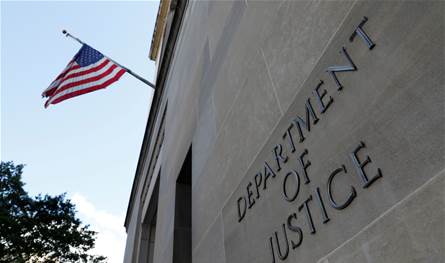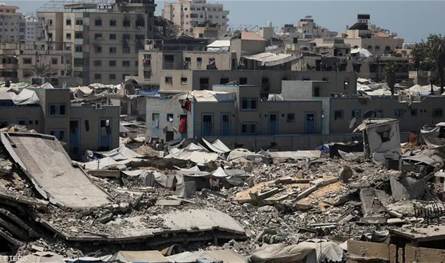Snake bites in Lebanon, the danger is increasing and treatment is rare … Are we in danger?

Toxic snake bites in Lebanon, treatments are missing …
With the approaching summer heat and high temperatures, toxic snakes return to active in the Lebanese regions, especially rural and mountainous, which raises the level of the risk to the population, and returns to the forefront the crisis of the absence of anti -toxinoms in government hospitals and some private. Are we facing a dominant seasonal health disaster?
Why do snake bites increase in summer in Lebanon?
It is environmentally known that snakes come out of their winter slumber at the beginning of the spring, but the peak of their activity extends during the months of June and July, when the heat rises and mountainous and rugged areas become more attractive to them. A number of cases are registered annually, especially in the villages of the south, the Bekaa and the North, where the inherent forests and areas are abundant.
Although some bites are not fatal, the delay in appropriate treatment can lead to serious complications that may lead to the life of the injured.
What are the most common toxic snakes in Lebanon?
Lebanon is characterized by a large biological diversity, and includes more than 25 types of snakes, among them 3 toxic types that are the most dangerous to human life:
1. Vipera palaestinae
- The most common Among the poisonous snakes in Lebanon.
- It lives in mountainous and coastal areas.
- Outstanding With a triangular head and dark inscriptions on the body.
- Poison It causes topical swelling, systemic symptoms such as low blood pressure, and difficulty breathing.
2. Black Pall
- Small but highly toxic snake.
- She lives in hot and dry areas.
- It secretes a nervous poison It affects the heart muscle and lungs.
3. Walterinnesia aegyptia
- Less widespread than others, but it is present in some areas of the south and the Bekaa.
- It is very nervous and so dangerous, and it may lead to paralysis and death if it is not treated immediately.
Disclaimer: Most of the snakes are in Lebanon Non -toxicBut it is difficult for the average person to distinguish between them and toxic species, so it is advised not to approach any snake.
Symptoms of toxic snake bites: When will the condition become dangerous?
Symptoms depend on the type of snake, the amount of injectable poison, and the location of the sting. But the most prominent general symptoms include:
- Severe pain In the sting site, it is associated with redness and swelling.
- Nausea and vomiting وخصمة
- General weakness وححب.
- difficulty breathingEspecially in cases of cobra bites or sole.
- Numbness fringe.
- bleeding Topical or from body openings (rare).
If these symptoms appear after the bite, you should immediately go to the nearest hospital or contact the Lebanese Red Cross.
First aid after the sting: steps that may save life
In the event that the bite is exposed, the next steps are necessary until the hospital is reached:
- Contact the Red Cross immediately On the number 140 or the nearest ambulance.
- Calm the injured And avoid the movement as much as possible.
- Install the affected limb Under the heart level to reduce the spread of poison.
- Remove jewelry or tight clothes From the affected party.
- Not to try to suck the poison Or the incision of the wound, as this may increase the spread.
- Not to give the injured drink or food Until arrival at the hospital.
The most dangerous crisis: Where is antiveenom?
Despite the danger of snake bites, medical and pharmaceutical reports indicate to The scarcity of anti -toxic injection In most of Lebanon’s hospitals, especially governmental ones. The reason for this is due to:
- The cost of the high injection That may reach hundreds of dollars.
- Short period It does not exceed two years, which makes it vulnerable to damage if it is not used during the tunnel season.
- The poor import of the state for these species It is medicines since the economic crisis.
According to sources in the health sector, some patients have been forced during the past years Resorting to Syria To get the injection, which puts their lives due to the delay.
Why does the state not always secure an anti -toxic stock?
Some hospital departments attribute the matter to the absence of budget, and the difficulty of predicting the number of bites annually. In the absence of support of the Ministry of Health, private institutions prefer to avoid buying these injections that may be wasted if they are not used during their season.
This reality puts citizens, especially in remote villages, at a constant threat, and confirms that Public health in Lebanon has become hostage to crises And not only for toxins!
What is required to avoid the health catastrophe?
- A national awareness campaign Through the media about safe dealing with snakes.
- Support of parties hospitals By the Ministry of Health with a sufficient stock of poison.
- Training health cadres On rapid aid for poisoning cases.
- Coordination with global health organizations To provide injection at subsidized prices.
Tips to avoid toxic snake bites in the summer:
- Not walking in dense herbal areas or rocks without closed shoes.
- Avoid sitting or sleeping in the open at night.
- Not moving large stones or firewood with two naked hands.
- If you see a snake, do not try to kill or approach it, but rather leave the place immediately.
- Keep the Red Cross number on hand.
With every summer, a case returns Toxic snake bites To ask a big question about the extent of the Lebanese health system’s readiness to face natural disasters. And between the absence of medicines and weakness in awareness, the citizen remains alone in the field, suffering between poison and disability.
The post Snake bites in Lebanon, the danger is increasing and treatment is rare … Are we in danger? appeared first on 961 tobay Lebanon today.










